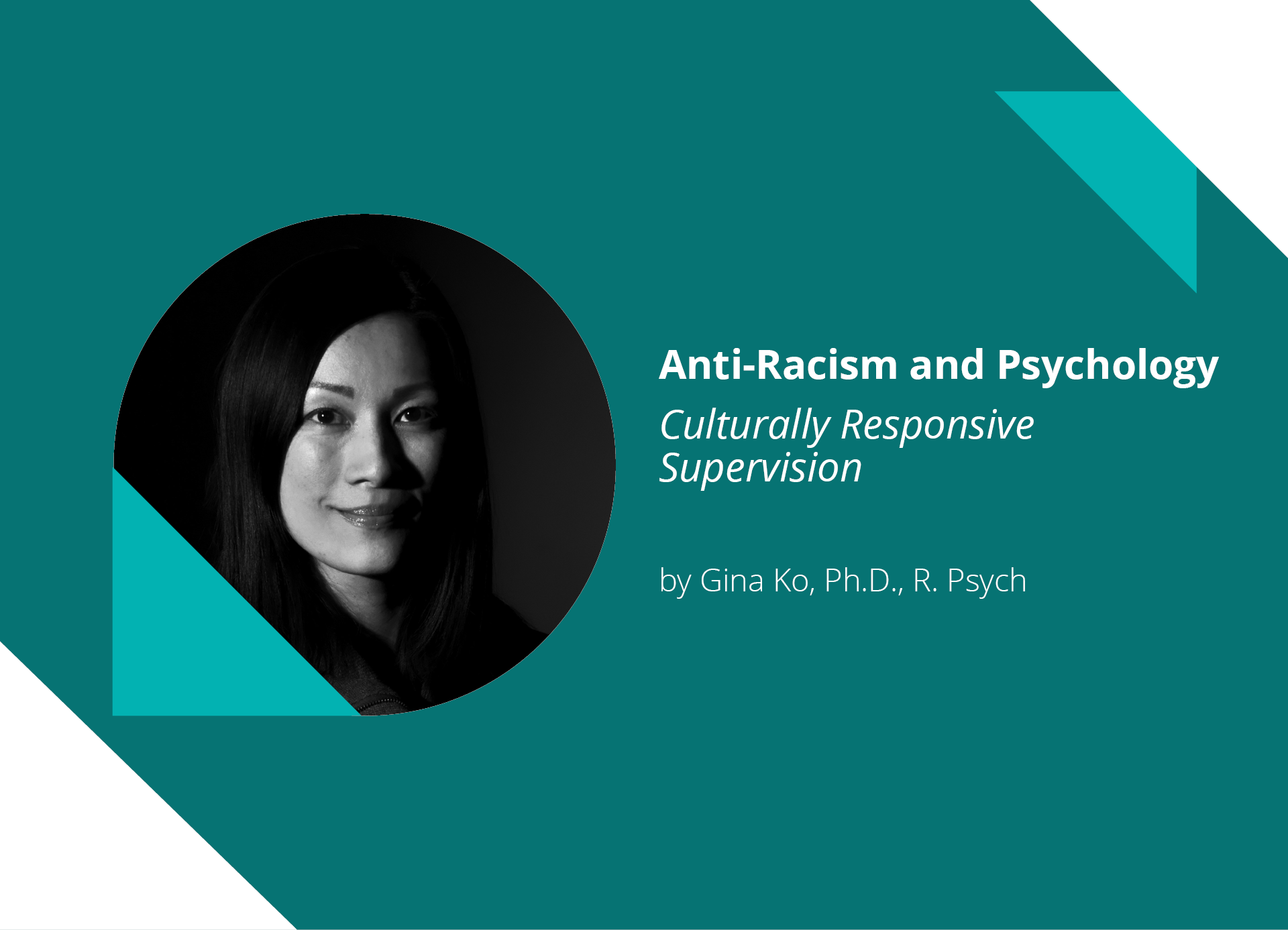
3 minute read
Anti-Racism and Psychology: Culturally Responsive Supervision
By Gina Ko, Ph.D., R. Psych
As a registered psychologist in Alberta, I have been supervising Registered Provisional Psychologists since July of 2021. I am the founder of Ko Psychology where we offer a culturally responsive and socially just lens and invite individuals from diverse backgrounds to reach out. We provide counselling psychological services in English, Cantonese, Punjabi, and Vietnamese. We work with individuals, couples, children, youth, and families. We explore identity, belonging, life transitions, work-related challenges, relationships, and other factors that bring patients to therapy.
In supervision, we process, dialogue, and offer nuanced ways to explore patients’ challenges related to upbringing, dominant narratives, and systemic oppression.
All the provisional psychologists are incredibly dynamic, culturally sensitive professionals; they are also women of colour with various intersections to their identities. Many patients are from diverse cultural backgrounds with various intersectionality of ethnicity, gender, sexual orientation, age, ability, education, socioeconomic status, and religion. In June 2025, my team and I will be presenting at the Canadian Psychological Association to offer a workshop titled “Supervision and Cultural Responsivity: Supervisor and Supervisee Collaborations.” The term collaboration is essential to the supervision experience. Supervisees come to supervision with points to address, patient case conceptualizations, and questions to ask. I offer my perspective, ask questions, offer resources, and ideas. Through this generative and iterative process, we co-create ways forward for patients to heal and thrive.
As a supervisor, I have learned so much from supervisees and their patients. For example, when we address tendencies such as perfectionism, there could be layers of reasons patients from collectivistic ethno-cultural backgrounds could develop such lived experiences and behaviours. I ask questions about their upbringing, interactions with parents, felt expectations, and obligations. We may land on how such patients become people pleasers because they want to live up to their immigrant parents’ expectations of them. They see how their parents sacrificed by leaving their home country and endured so much to survive with language and cultural barriers. Even when there is a leaning toward cutting contact with a parent due to their emotional volatility and the lack of following boundaries, patients still may want to please them, in part due to filial piety. Suggesting to patients that they should go no contact as a firm boundary may not fit.
Together, we create small steps that patients are ready to take, to care for themselves and to communicate to their parent that they need space (for example). When they have moved out, how would they negotiate their time visiting? In this process, self-awareness and cultural humility are needed to challenge assumptions and biases. In supervision, we process, dialogue, and offer nuanced ways to explore patients’ challenges related to upbringing, dominant narratives, and systemic oppression. We cocreate optimistic ways to support patients in advancing their self-growth by suggesting acts of resistance and helping to cultivate resilience. We provide strengths-based, inclusive, and patient-centred interventions. My supervisees have shared how they feel heard and that the ideas I offer are helpful to their patients when they offer them. Being a supervisor and mentoring the new generation of supervisees is fulfilling and meaningful.





